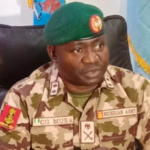
As Israel moves to break Iran’s multifront stranglehold, the path ahead requires not only strategic wisdom and military tenacity, but also the internal cohesion that has been so dangerously absent
With the killings of two terror chiefs in the capital cities of two enemy nations in the past few hours, the existential war that began for Israel with Hamas’s invasion and slaughter on October 7 has now entered uncharted territory.
The elimination of Fuad Shukr, Hezbollah’s most senior military official, in a strike in Beirut confirmed by Israel, demonstrated Israel’s remarkable intelligence capabilities and its capacity to carry out a precision strike even on a target who would have known that he was in Israel’s sights. And it constituted at least a symbolic response to the horrific Hezbollah missile attack that killed 12 children in an Israeli Druze village three days earlier.
It was by no means unprecedented, however. The IAF killed Hamas military chief Saleh al-Arouri in a similarly precise strike in Beirut seven months ago, and, going back 22 years, killed the then-Hezbollah leader Abbas Mousawi in a strike on his convoy in southern Lebanon.
The killing of Ismail Haniyeh in Iran, blamed on Israel but not acknowledged by Israel, by contrast, is a blow of a different order.
Israel has struck key figures inside Iran in the past, being widely regarded as responsible for the killing of Iran’s top nuclear scientist Mohsen Fakhrizadeh in November 2020, for instance. It killed Hamas’s founder, Sheikh Ahmad Yassin, in Gaza in 2004. And it has targeted the most senior figures in Hamas in foreign capitals, with the failed Mossad assassination of Haniyeh’s predecessor Khaled Mashaal in Amman in 1997.
But now, according to the unconfirmed reports of Israeli responsibility, it has eliminated the head of one of Iran’s array of proxy terror groups in the heart of Iran — taking the war directly, and humiliatingly, to the capital of the Islamic Republic, challenging its sovereignty, even as Tehran was celebrating the inauguration of a new president.
Until now, the ayatollahs’ regime was directing what has become a devastating multifront war against Israel since October 7 with relative impunity. Training, arming, inspiring and mobilizing forces dedicated to Israel’s destruction — from Hamas to the Houthis, Hezbollah, and militias in Syria and Iraq, while quietly advancing toward nuclear weapons — it was itself largely outside the regional war it was fueling. With one obvious exception, that is — when it chose to respond to Israel’s killing in Iran’s embassy compound in Damascus four months ago of two senior Islamic Revolutionary Guard Corps terror chiefs by launching hundreds of drones and missiles at Israel in an almost entirely unsuccessful attack.
Without doubt, “retaliation” will follow; I use quotation marks around that word because nobody should lose sight of the fact that this regional war was initiated by Hamas, invading sovereign Israel from the adjacent territory governed by Hamas and on which Israel had no claims, and was then escalated by Hezbollah, the Houthis et al under Iran’s direction.
The Hamas of a few months ago, needless to say, would have been firing barrages at Tel Aviv for the past few hours. That danger may not have entirely passed, but Hamas’s rocket potency has immensely receded.
As was the case at the very start of the war, when US President Joe Biden warned Iran and Israel’s other enemies against getting involved and dispatched aircraft carriers to underline his intent — with partial success — the stance and actions of the United States will likely be crucial as Iran weighs its options. As things stand, Israel is already a near-pariah.
For all the tactical proof of pinpoint capabilities, for all the readiness to act in ways that Israel’s enemies might have regarded as improbable, for all the embarrassment Tehran is now suffering, the events of the past few hours do not in and of themselves necessarily represent a strategic turning point that will ease Israel’s crisis. Indeed, the opposite could prove to be the case. For, again, this is uncharted territory.
Hezbollah has been implacably undeterred by months of Israeli counterattacks, has been deepening its strikes inside Israel, retains the undiminished capacity to wreak colossal devastation throughout Israel with its vast rocket and missile capabilities, and will not be particularly shaken even by the elimination of so senior a figure as Shukr.
Since the start of the war, the Lebanese terror group has killed 25 civilians and 18 soldiers, and fired more than 6,500 rockets, hundreds of drones, and hundreds of missiles.
It killed an Israeli civilian at Kibbutz HaGoshrim only on Tuesday, reconfirming the untenability of the situation in the north, from where tens of thousands of Israelis have been internally displaced, and where an ever-wider swath of Israelis who have not moved south are vulnerable.
In Gaza, meanwhile, 111 of the hostages abducted on October 7 remain in the hands of Hamas — 39 of them confirmed dead. The IDF is now warning that some hostages may never be found.
There is no telling how the elimination of Haniyeh will impact efforts to finalize and implement a hostage-ceasefire deal, but plainly the process, yet to yield a deal in the eight months since the November truce and releases, will be still more fraught.
Ready for all eventualities
Israel said after the elimination of Shukr that it is not seeking a wider war but is ready for all eventualities. It most certainly needs to be.
And what is self-evident is that such readiness requires and depends on internal cohesion.
The far-right mob rampages into two IDF bases — at Sde Teiman and Beit Lid — on Monday marked the most untenable incidents of internal viciousness, irresponsibility and weakness we have witnessed these past months. The sight of coalition members inciting and participating in the illegal storming of military bases, attempting to prevent the IDF from handling allegations against a group of reservists of serious abuse of a terror suspect, was the culmination of a systematic attempt to undermine the rule of law in Israel that has been a hallmark of the governing coalition since it took office at the end of 2022.
Appalling as Monday’s rampages were, complete with masked, armed agitators in IDF uniforms, the events could have been even worse had not the IDF forces repelling the mob taken the greatest care to prevent the spilling of blood.
As Israel belatedly moves to break the stranglehold Iran has been gradually building and tightening around us, the only path out of this uncharted territory requires not only peerless strategic wisdom and military tenacity, but also the kind of internal cohesion that has been so dangerously absent here.
“We are not looking to go to war, but we are well prepared for it,” IDF Spokesman Daniel Hagari said late Tuesday after confirming the elimination of Shukr. We had better be, from within as well.
-
Culled from Times of Israel (ToI): HOROVITZ is Editor-in-Chief of ToI
-
Follow us on all social media platforms @dailyquery for more news, information and analyses from across the globe.



























